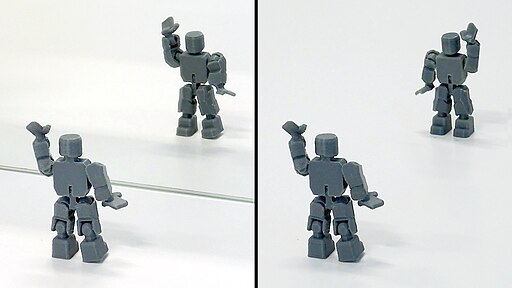Search
The EEOC is suing a work placement agency for individuals with disabilities for, yep, disability discrimination.

MikeRun, CC BY-SA 4.0, via Wikimedia Commons
I really wanted to use the Spiderman meme here. But to avoid any potential copyright issues, please accept this cheaply executed facsimile — not in counterparts — instead. And here is some music to hammer the point home.
I see something like this in the EEOC newsroom, and I know that a blog post is about to write itself.
(Or, at least, I’m going to do a lot of copying and pasting.)
Here’s more from the EEOC’s press release announcing the lawsuit:
According to the EEOC’s lawsuit, several deaf employees made repeated requests for sign language interpreters for staff meetings where [the company] discussed work safety procedures, work protocols and assignments, and other work-related information. Despite [the company’s] awareness of the deaf employees’ need for sign language interpreters and their limited English proficiencies, the company provided ineffective accommodations like providing written notes, handouts, and asking a deaf employee to interpret for other deaf employees.
The EEOC asserted that as a result of the failure to provide effective accommodations, the deaf employees were denied the benefits and privileges of employment, including full participation in these meetings and equal access to important information about their jobs and working environment.
It bears reminding that, as with any lawsuit, these are just allegations and not facts. We don’t know the defendant’s side of the story.
Taking the EEOC’s allegations as true, it does appear that the company attempted to accommodate deaf employees with written notes, handouts, and co-worker interpreters. But they did not allow deaf employees to perform the job’s essential functions.
Again, I don’t know the specific build-up here. Still, many companies find themselves in ADA failure-to-accommodate lawsuits because they substituted their own accommodation judgment for an employee with a disability. The result is an ineffective accommodation.
The ADA does not require providing the employee’s first choice of accommodations. But, it does require a reasonable (effective) accommodation where one is available. So unless an accommodation, like a sign language interpreter, creates an undue hardship, the business owns whatever alternative the business provides. Suppose you can save a few bucks and effort and still provide something reasonable, great! If not, you may end up in a costly lawsuit.
Just ask the work placement agency for individuals with disabilities getting sued for disability discrimination.
 The Employer Handbook Blog
The Employer Handbook Blog


